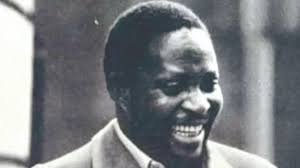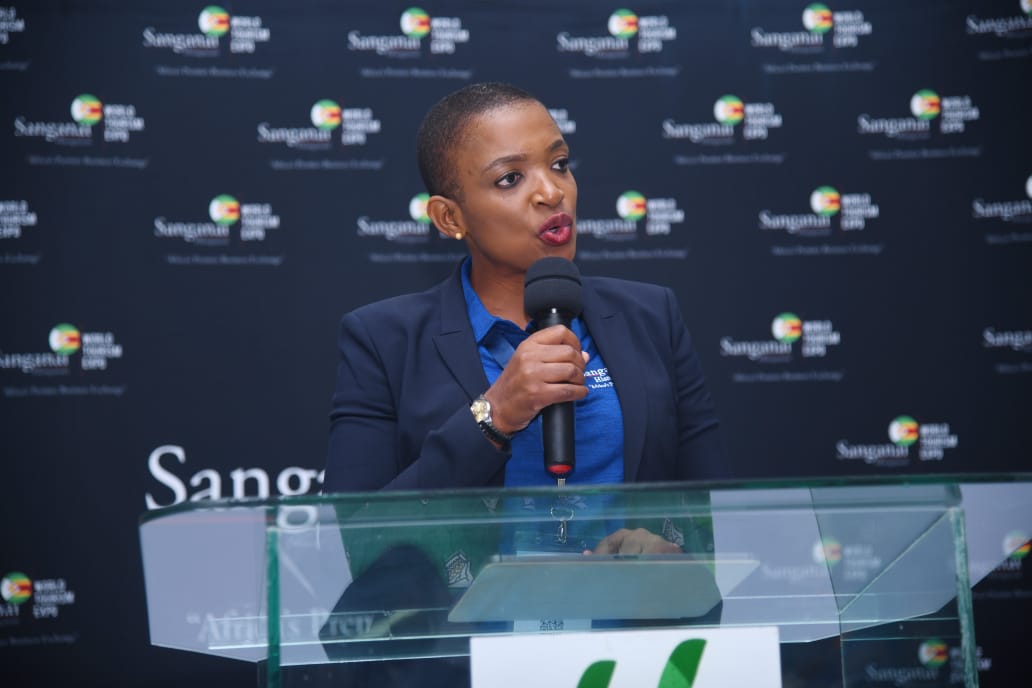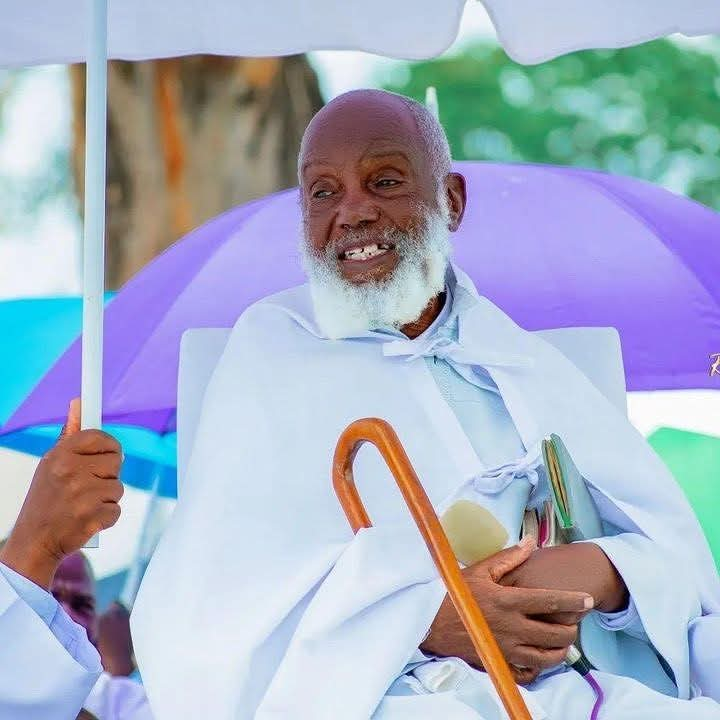Current Affairs
Heroes Month Spotlight- Josiah Magama Tongogara: Life, Leadership, and Legacy

Widely known as General Tongo during Zimbabwe’s liberation struggle, Josiah Magama Tongogara was the commanding figure of ZANLA (Zimbabwe African National Liberation Army), the military wing of ZANU (Zimbabwe African National Union). He played a vital leadership role in the Dare ReChimurenga (ZANU’s War Council) and its High Command, overseeing military strategies against the Rhodesian regime led by Ian Smith.
In December 2017, the Zimbabwean government officially renamed King George VI Barracks and the Air Force Headquarters in Harare to Josiah Magama Tongogara Barracks, honoring his contributions to the liberation of the country.
Early Life
Tongogara was born on 4 February 1938 in Selukwe (now Shurugwi). He grew up on a farm owned by Ian Smith’s parents, where both of his own parents worked and where he too was later employed. He completed primary education up to Standard Six. Due to challenges accessing secondary education, he migrated to Northern Rhodesia (modern-day Zambia) in 1960, where he studied bookkeeping and took up a job as secretary at Chainama Golf Club.
Path to Revolution
His brother Percy’s untimely drowning in the Kafue River—which he believed to be politically motivated—served as a turning point in Tongogara’s life, pushing him towards militant nationalism. In 1963, he began political activism in Zambia through ZANU’s youth wing. By 1966, he led the first group of liberation fighters to undergo military training in China.
Tongogara was seen as a capable and assertive leader. In 1973, he replaced Herbert Chitepo as head of ZANU’s High Command, signaling a shift in internal power dynamics within the movement. A year later, he openly opposed peace negotiations initiated by Zambian President Kenneth Kaunda, insisting that the armed struggle continue.
Arrest and Military Unity
Following the assassination of Chitepo in March 1975, Tongogara was arrested and imprisoned in Zambia on suspicion of involvement. While incarcerated, he endorsed the formation of ZIPA (Zimbabwe People’s Army), a unified military front combining fighters from both ZANLA and ZIPRA (the military arm of ZAPU). He was acquitted and released in 1976, just in time to attend the Geneva Conference.
Lancaster House Talks and Push for Unity
Tongogara played an influential role in the 1979 Lancaster House negotiations that paved the way for Zimbabwe’s independence. Known for his level-headed approach, he reportedly helped mediate tense moments, including one instance when he calmed down Robert Mugabe after a heated exchange with Lord Carrington, the talks’ chair.
He advocated for unity between ZANU and ZAPU, even holding private meetings with Joshua Nkomo. Some believe his push for post-war political integration and his strong stance during the talks may have made him a target.
Controversial Death
Tongogara died on 26 December 1979, just days after the Lancaster House Agreement. Official accounts state he perished in a car accident in Mozambique, but the circumstances of his death remain widely disputed. Conflicting reports range from mechanical failure to collision with an abandoned military vehicle. Some even allege that he was assassinated, potentially due to his influence and differing political vision from Mugabe.
Family members, including his widow Angelina, raised concerns over the secrecy surrounding his death. She claimed she was never allowed to fully view his body and questioned the official version of events. Later interviews and testimonies, including from Oppah Muchinguri and Dumiso Dabengwa, presented varying narratives—some insisting it was an accident, others suggesting an internal plot.
Personal Life and Family
Tongogara was married to Angelina, with whom he had four children: Hondo, Tichafa, Bvumai, and Nyaradzo. However, his eldest brother, Michael Tongogara, claimed Josiah fathered ten children with seven women during the war. One of his children, Conrad (born 1963), is said to be the eldest. Others include Sukai, Simba, Tichaitora, Annie, and Granger.
Legacy and Recognition
In 2012, the Tongogara Legacy Foundation was launched to preserve his memory and contributions to Zimbabwe’s liberation. Despite early neglect from the state, his family eventually received government support. Angelina even sought help from then Prime Minister Morgan Tsvangirai, alleging economic hardship due to state inaction.
Calls were made to declare 26 December as Josiah Tongogara Day, though this was not officially adopted. However, the renaming of military installations in 2017 by President Emmerson Mnangagwa was a significant gesture of recognition.
Josiah Tongogara remains a complex and revered figure in Zimbabwe’s liberation history. Respected for his military brilliance, political foresight, and commitment to unity, his untimely and controversial death left a void in Zimbabwe’s post-independence trajectory. His life continues to inspire debate, research, and remembrance.
Current Affairs
Minister Rwodzi Charts Path as Sector Takes Lead in GDP Growth

Itai Mazire
Tourism and Hospitality Industry Minister Barbara Rwodzi has implored players in the sector to embrace innovation, sustainability, and stronger partnerships to safeguard Zimbabwe’s tourism gains, as the industry now leads national GDP growth ahead of mining and agriculture.
In a speech delivered on her behalf by Tourism Permanent Secretary Dr. Takaruza Munyanyiwa at the Hospitality Association of Zimbabwe (HAZ) Summit and Annual General Meeting in Harare today, Minister Rwodzi said the country stood at a “historic crossroads” following its recent listing by Forbes as the best destination to visit in 2025.
“This is a well-deserved accolade which we should celebrate and sustain going forward. Congratulations, makorokoto, amhlope to the service providers of the tourism and hospitality industry of Zimbabwe.”
The Minister applauded the sector’s resilience in the face of pandemics, economic headwinds, and climate-related shocks, noting that the spirit of Zimbabwean hospitality remains unbroken.
“We have continued to smile, to serve, and to tell our authentic story, hence reaping the rewards now,” she said.
Giving an update on performance, Minister Rwodzi reported that international tourist arrivals grew by 9 percent between January and September 2025 compared to the same period last year, with strong traffic from the Americas, Africa, and Asia.
Domestic travel also surged by 20.9 percent over the same period, while the sector generated approximately USD 922 million in 2025 a 10 percent rise from the USD 839 million recorded last year.
“These are encouraging signs that our recovery is gaining positive traction. But future-proofing requires more than recovery it demands transformation,” she said.
Minister Rwodzi outlined five pillars she said would anchor the transformation of the sector: digitalisation; sustainable and climate-resilient tourism; human capital development; infrastructure and connectivity; and stronger branding and market diversification.
“The future of hospitality is digital,” she said. “We must move from brochures to big data, from paper-based booking to smart platforms.”
She urged operators to embrace online booking systems, virtual reality tourism aids, and other digital tools that enhance visitor experiences.
On sustainability, Minister Rwodzi said protecting Zimbabwe’s natural and cultural heritage was “not an expense it is an investment in the longevity of our industry.”
The Minister stressed the need to invest in human capital, calling on operators to work closely with academia to bridge skills gaps and develop tomorrow’s hospitality innovators. She highlighted the First Lady, Dr. Auxillia Mnangagwa’s gastronomy vision as a key avenue for elevating Zimbabwe’s culinary offerings.
On infrastructural development across the country, she said it remained central to competitiveness: “A tourist’s journey begins long before they reach our front desk — it begins on a road, a runway, or a mobile network.”
Minister Rwodzi reiterated that Government is committed to creating an enabling environment, pointing to the recent reduction of tourism fees by up to 50 percent to lower operating costs.
“Future-proofing cannot be achieved by Government alone,” she said. “The private sector is the engine of creativity, investment, and service excellence.”
Her call for collaboration was anchored on an African proverb which states that, “Tomorrow belongs to the people who prepare for it today.”
The Minister said the role of HAZ remained critical as Zimbabwe eyes increased international tourist inflows.
“The world’s eyes are turning towards Zimbabwe. We have the assets, we have the people, we have the passion so why not?” she said.
“To HAZ, your role has never been more critical. You are the unified voice of the hospitality industry. Your strength lies in your collective action.”
She said the ongoing summit provided a platform to “strategise, innovate, and build consensus” as the sector pushes towards Vision 2030.
“The potential is vast. The time is now. Let us build not just an industry, but a legacy,” said Minister Rwodzi.
Current Affairs
Apostolic Church Founder Paul Mwazha Dies at 107

Zimbabwe and the wider African Christian community are mourning the loss of Bishop Paul Mwazha, the revered founder of the Apostolic Church in Africa, who passed away today at the remarkable age of 107.
Bishop Mwazha, widely regarded as one of the continent’s most influential religious leaders, dedicated his life to the growth and spiritual guidance of his church, which boasts millions of followers across Zimbabwe and beyond. His teachings, rooted in faith, discipline, and community service, have left an enduring legacy that continues to shape generations.
The Apostolic Church in Africa under his leadership became a cornerstone of spiritual life in many communities, providing not only religious guidance but also social support and education initiatives. Church leaders have called for prayers as they prepare for national and regional mourning rituals.
Further details on funeral arrangements and memorial services are expected to be released in the coming days.
Business
Zimbabwe Bets Big on Biotech to Fuel Industrial Revolution


Dr. Eng. Willie Ganda
By Enia Dube
The Minister of Higher and Tertiary Education, Innovation, Science and Technology Development, Hon. Dr Fredrick Shava, has thrown his weight behind biotechnology as a key driver of the country’s industrialisation and modernisation agenda.
Speaking at the National Biotechnology Authority (NBA) Strategic Planning Workshop in Kadoma, Dr Shava urged the Authority to identify biotechnology-led opportunities that can boost national production and accelerate economic growth.
“Biotechnology serves as a key catalyst for NDS2 implementation, advancing inclusive economic growth, job creation, and sustainable industrial development,” Dr Shava said, emphasising the need to integrate biotechnology into national value chains to unlock a biotechnology-driven economy. He added that this would turn innovation into industry, knowledge into enterprise, and science into jobs.
The NBA has made notable progress in establishing a strong regulatory framework, promoting biotechnology research and commercialisation, and raising public awareness about the sector’s potential. The Authority has successfully commercialised products such as Mapfura wine and Cofsol cough syrup, and has several other biotechnology products in the pipeline.
Incoming NBA Board Chairperson, Professor Idah Sithole-Niang, echoed Dr Shava’s sentiments, emphasising that the Authority’s five-year strategic plan must meaningfully contribute to the attainment of Vision 2030. “This event marks a significant milestone in the Authority’s ongoing efforts to enhance the role of biotechnology in Zimbabwe’s socio-economic development,” she said.
The workshop aimed to realign priorities and resources in response to emerging technologies and global biotechnology trends, and develop a strategic roadmap to strengthen biotechnology as a key driver of Zimbabwe’s socio-economic transformation. The rapidly evolving global biotechnology landscape, including advancements in gene editing, bio-manufacturing, and climate-smart innovations, presents both new opportunities and challenges for Zimbabwe.
“We recognise the pressing need for an inclusive and forward-looking strategic plan that can navigate the complexities of the biotechnology landscape,” Professor Sithole-Niang noted. The workshop was attended by researchers, government officials, and NBA staff, who are optimistic about the potential of biotechnology to drive Zimbabwe’s economic transformation and achieve Vision 2030.
-

 Current Affairs1 week ago
Current Affairs1 week agoOperation restore order
-

 Crime and Courts2 months ago
Crime and Courts2 months agoMasasi High School Abuse Scandal Sparks Public Outcry
-

 Crime and Courts2 months ago
Crime and Courts2 months agoKuwadzana Man Jailed for Reckless Driving and Driving Without a Licence
-

 Current Affairs3 months ago
Current Affairs3 months agoMunhumutapa Day: Zimbabwe’s Newest Public Holiday Set for Annual Observance
-

 Current Affairs4 months ago
Current Affairs4 months agoBreaking: ZIMSEC June 2025 Exam Results Now Available Online
-

 Current Affairs1 month ago
Current Affairs1 month agoBREAKING NEWS: ZANU PF Director General Ezekiel Zabanyana Fired
-

 Current Affairs3 months ago
Current Affairs3 months agoGovernment Bans Tinted Car Windows in Nationwide Crime Crackdown
-

 Current Affairs2 months ago
Current Affairs2 months agoExposed: Harare GynecologistChirume Accused of Negligence, Extortion, and Abuse



